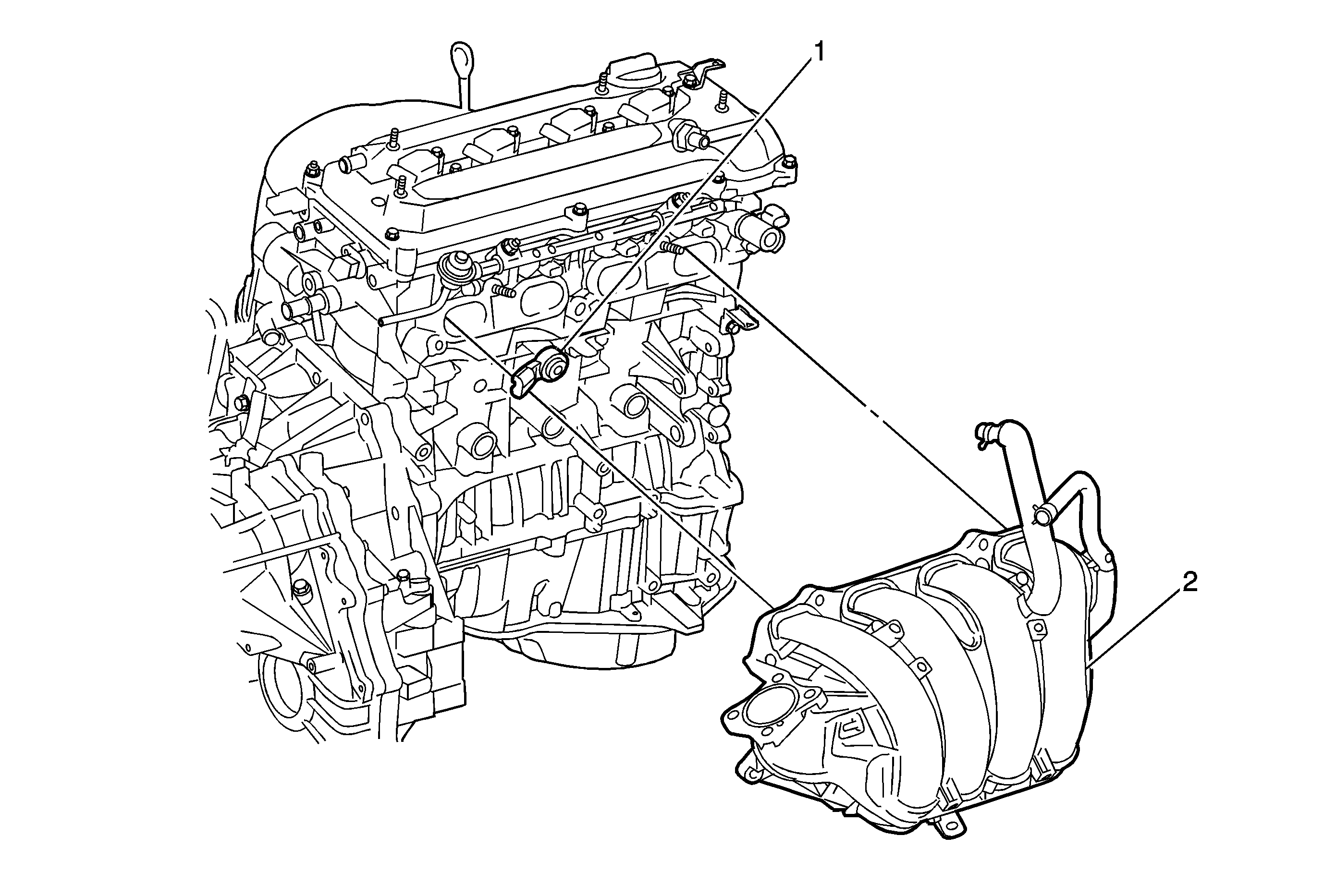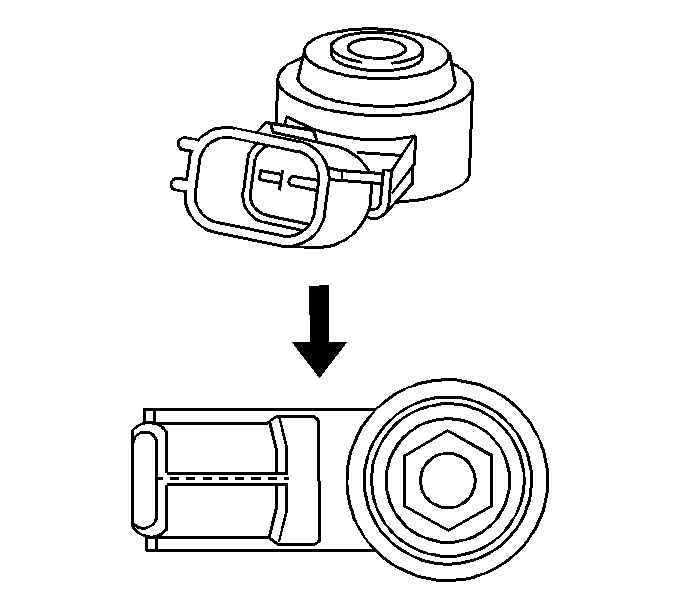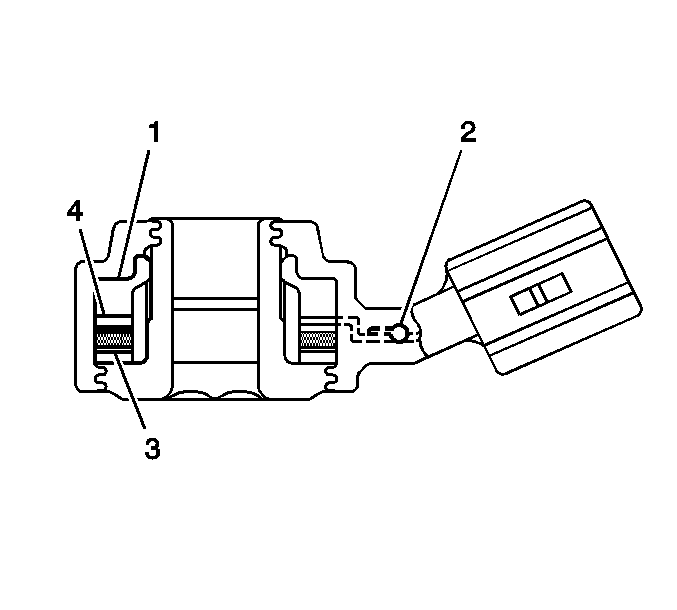
The 2.4L engine is equipped with a knock sensor (KS) (1) that is located on the engine block behind the intake manifold (2). Ignition timing determines the relationship between the time the spark plug is fired and the time that the piston reaches the end
of the pistons upward travel in the cylinder (TDC). If the spark plug ignites the compressed air/fuel mixture too late, not all of the air/fuel mixture has time to burn while the fuel is highly compressed. Late ignition causes a decrease in fuel efficiency,
decreased power, and increased exhaust emissions. If the spark plug fires too soon, too much of the air/fuel mixture starts burning before the piston reaches the top of the compression stroke. Early ignition of the air/fuel mixture causes detonation, commonly
referred to as spark knock. Constant spark knock in the motor is undesirable. Excessive spark knock can reduce engine performance. If severe enough, detonation can cause engine damage.
Every engine has an optimum ignition timing value. The optimum ignition timing is usually the earliest or most advanced firing of the spark plug that is possible without causing detonation. An engines optimum ignition timing is designed to be the most
advanced ignition timing possible during the most demanding conditions. The optimum ignition timing is affected by all of the following variables:
| • | The atmospheric pressure |
| • | The fuel's octane rating |
Ignition systems equipped with a knock sensor (KS) can be engineered for optimum ignition timing. A KS detects when the engine is experiencing detonation and then signals the PCM to reduce the spark advance until detonation is no longer detected.
Non-Resonant Type Knock Sensor

The 2.4L engine is equipped with a flat design non-resonant type KS. The non-resonant KS enables the powertrain control module (PCM) to adjust the ignition timing in order to adapt to any of the variables that affect the optimal
ignition timing.
Operation




